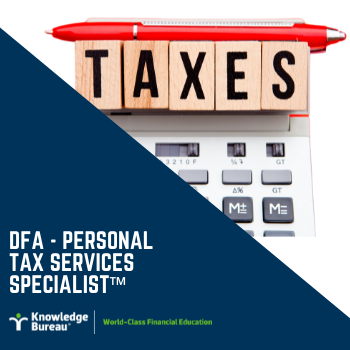Last updated: December 01 2021
An Important Option: Applying for Taxpayer Relief

Evelyn Jacks & Beth Graddon
There is an important, front line role tax professionals can take to help devastated flood victims with tax relief, effective immediately. CRA issued a statement on November 30 encouraging residents of BC affected by the flooding to request taxpayer relief if it affects their ability to pay their taxes on time. However, any taxpayer who is experiencing hardship may want to discuss a relief request, especially if errors or omissions that have lead to missed refunds or benefits. Here’s an overview on two important relief options available:
Pandemic-driven Interest Relief: tax filers who must meet all of the following criteria will be forgiven interest costs if cannot pay their taxes:
- A 2020 tax return has been filed
- Total 2020 taxable income was $75,000 or less
- The taxfiler received at least one COVID-19 benefit in 2020:
- Canada Emergency Response Benefit (CERB)
- Canada Emergency Student Benefit (CESB)
- Canada Recovery Benefit (CRB)
- Canada Recovery Caregiving Benefit (CRCB)
- Canada Recovery Sickness Benefit (CRSB)
- Employment Insurance (EI) benefits
- Provincial or territorial emergency benefits
All Other Cases: CRA is empowered to issue tax refunds and accept late filed or revoked returns beyond the normal three-year reassessment period for individuals and testamentary trusts - to a maximum 10-year limitation period, currently spanning the 2011 to 2020 tax filing years - should the following circumstances occur:
Extraordinary circumstances. This can include factors beyond the taxpayer’s control including:
- natural or human-made disasters, such as a flood or fire
- civil disturbances or disruptions in services, such as a postal strike
- serious illness or accident
- serious emotional or mental distress, such as a death in the immediate family
Actions of the CRA. This can include:
- processing errors CRA has made
- errors in CRA material resulting in a taxpayer filing or paying taxes based on incorrect information
- incorrect information provided by the CRA
- delays in providing information, resulting in taxpayers not being able to meet their tax obligations in a timely manner; or knowing that an amount was payable by them.
- undue delays in resolving an objection or an appeal, or in completing an audit.
Excess Interest Costs. Interest can add up quickly on unpaid taxes owing to CRA. This is because CRA charges that prescribed quarterly rate, currently 1%, plus 4% more, compounding daily.
CRA may cancel those excessive interest costs (in whole or in part) when their own collections activities must be suspended because of an inability to pay, caused by the loss of employment and those interest charges represent a significant portion of the CRA liability and are causing a financial hardship. Also, cancellation of interest is possible where the accumulated interest costs cause an inability to provide basic necessities such as food, medical help, transportation, or shelter.
Unfortunately, CRA will not usually cancel a penalty based on inability to or financial hardship. But they may if there is an extraordinary circumstance that prevented compliance with tax filing and payment.
CRA provides an example where a business may be experiencing extreme financial difficulty and its enforcement of tax penalties would jeopardize the continuity of business operations, the jobs of the employees, and the welfare of the community as a whole. This will be an important example to point to should CEWS or other pandemic-support audits push businesses to the brink of bankruptcy.
However, professional advisors will want to warn clients that for CRA to grant interest or penalty relief they will require full financial disclosure. This will include statements to support the reporting of income, expenses, assets, and liabilities.
CRA has provided a form to do so: The Statement of Income and Expenses and Assets and Liabilities for Individuals . For businesses, please see Determining a business’ financial situation .
Taxpayer relief requests can be submitted through My Account or Represent a Client. Look for the following:using the "Request relief of penalties and interest" service; or filling out Form RC4288, Request for Taxpayer Relief - Cancel or Waive Penalties or Interest and selecting the "Submit documents" service. Businesses or their representatives can apply online through My Business Account, or Represent a Client
The CRA also issued the following reminders to those affected by the flooding:
- CRA recognizes that Canadians affected by the unprecedented floods in British Columbia and Eastern Canada face unique challenges and is committed to help during this difficult time.
- Taxpayers who expect to receive CRA benefits and credit cheques by mail may experience a delay and are encouraged to enroll for direct deposit to continue to receive benefits directly to their bank accounts.
- Canadians affected by flooding can visit the Canada Post “Delivery service alerts” webpage for information on accessing their mail.
- Taxpayers can also sign up for direct deposit so they can keep getting their benefits directly to their account. Visit Direct deposit – Canada Revenue Agency or call the CRA at 1-800-959-8281.
- Many individuals, businesses and first responders may be unable to meet their tax obligations as usual because of this event. As such, measures are being put in place to ensure that Canadians facing such extraordinary circumstances will be treated fairly.
- If you are a taxpayer with a debt and require assistance during this time, CRA Collection officers are available to assist by contacting the Debt Management Call Centre at 1-888-863-8657.
- Under Taxpayer relief provisions, the Agency also has the discretion to cancel or waive penalties and interest due to circumstances beyond a taxpayer’s control. For more information, go to canada.ca/penalty-interest-relief. The CRA will consider each request on a case-by-case basis.
Additional educational resources: Earn the credentials to help taxpayers in need, especially as we approach another complex tax filing season. Enrol now to become a DFA-Personal Tax Services Specialist™.

